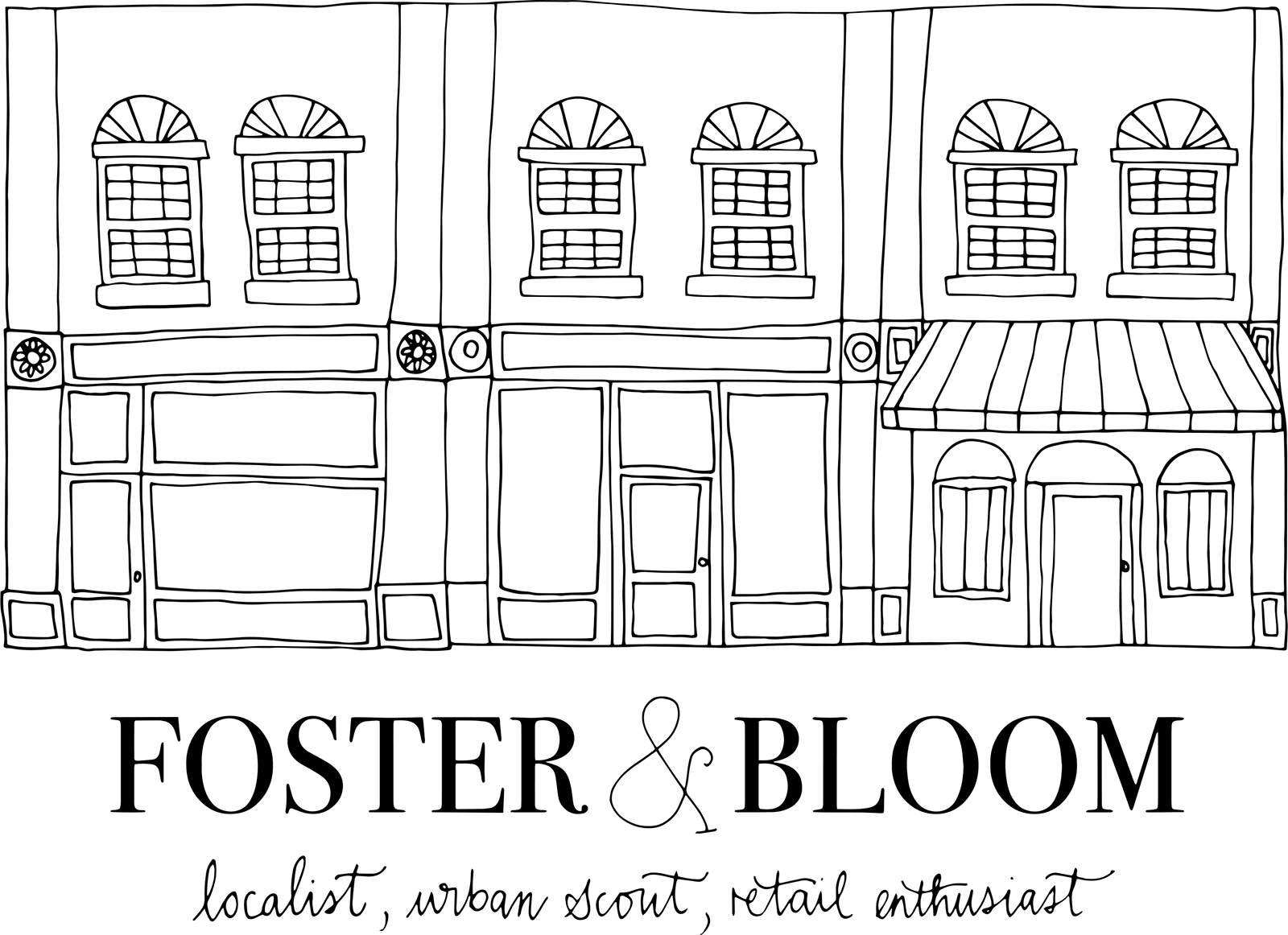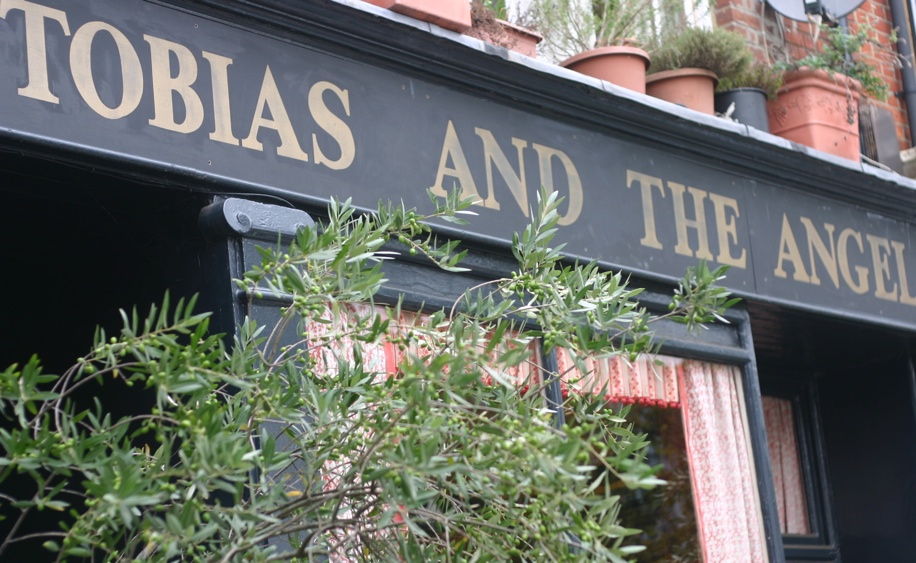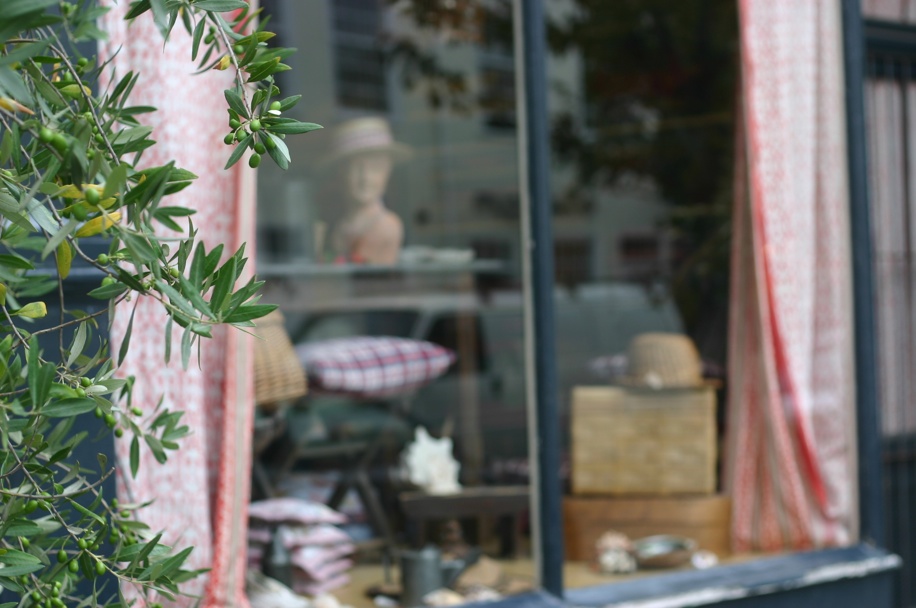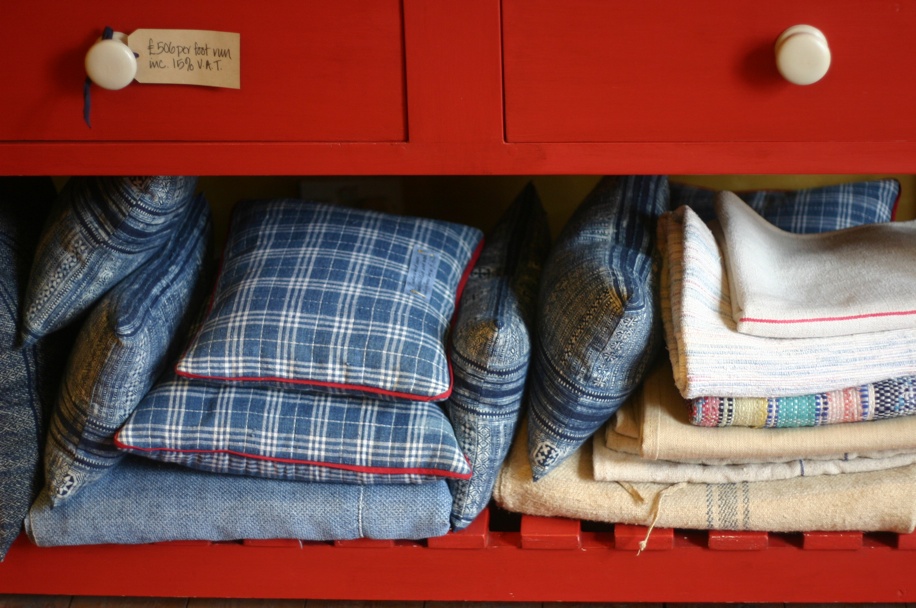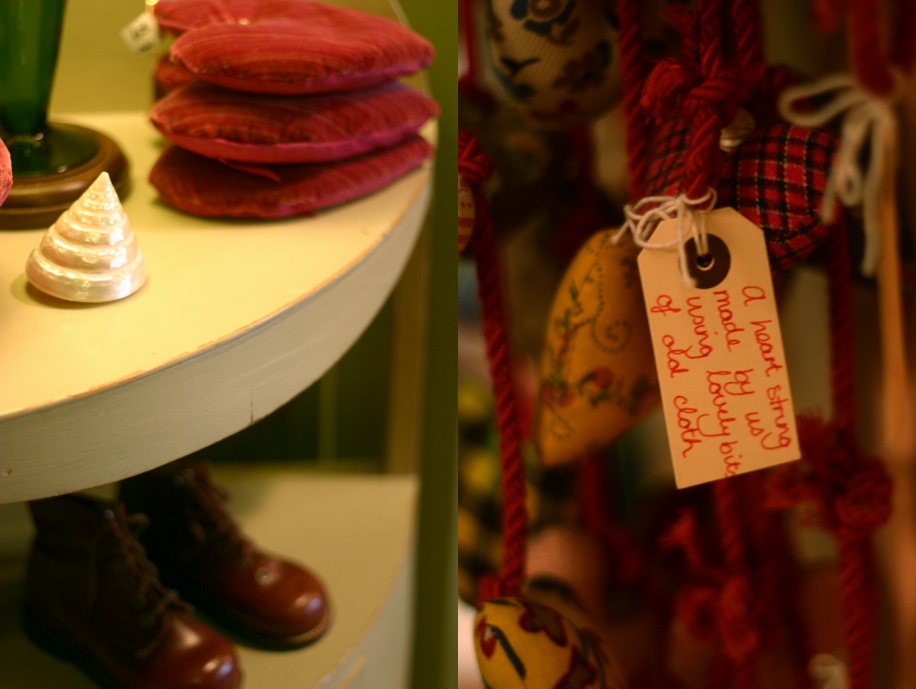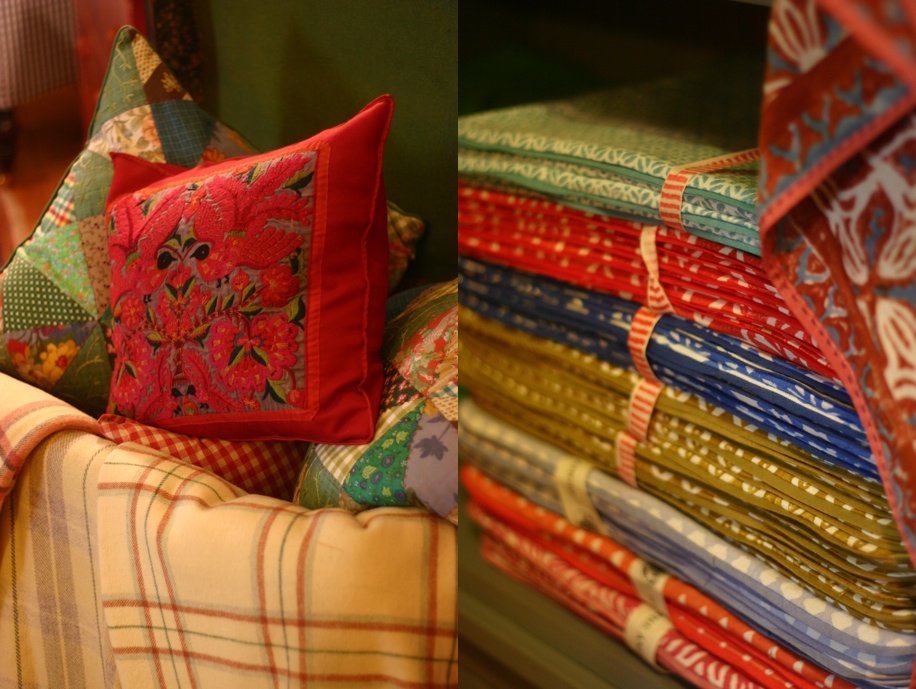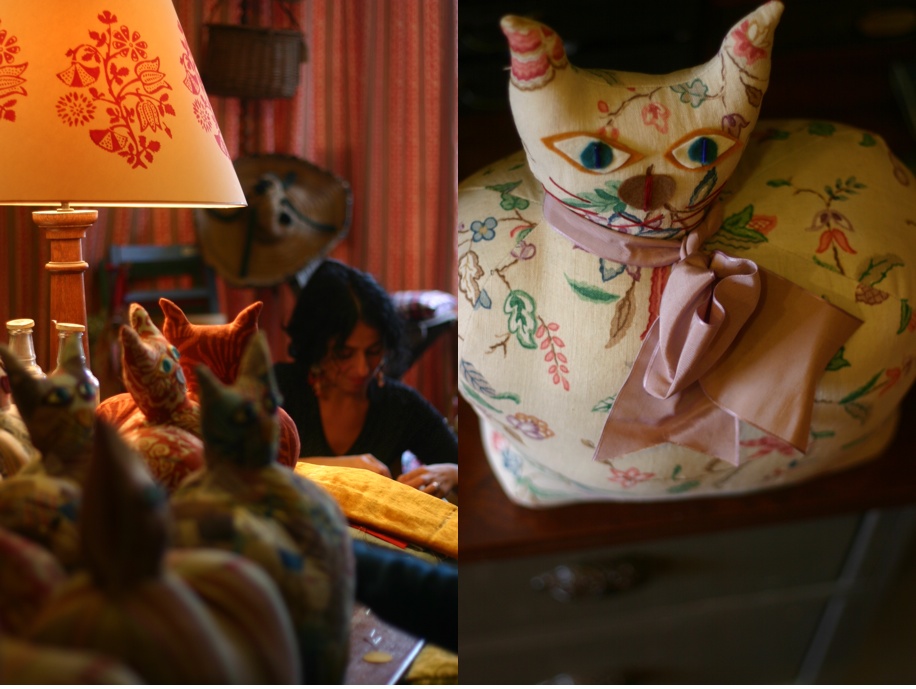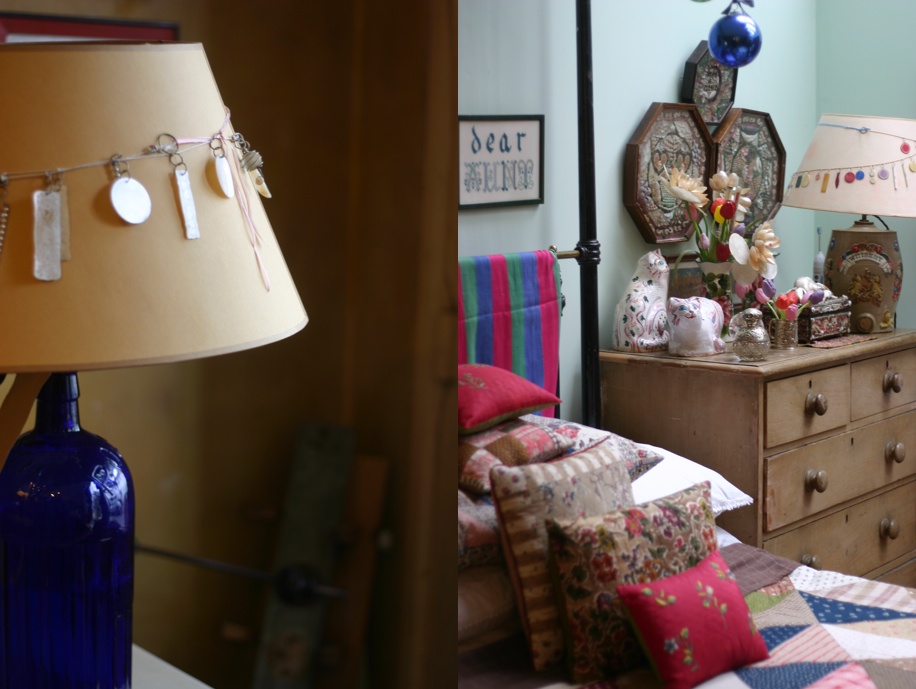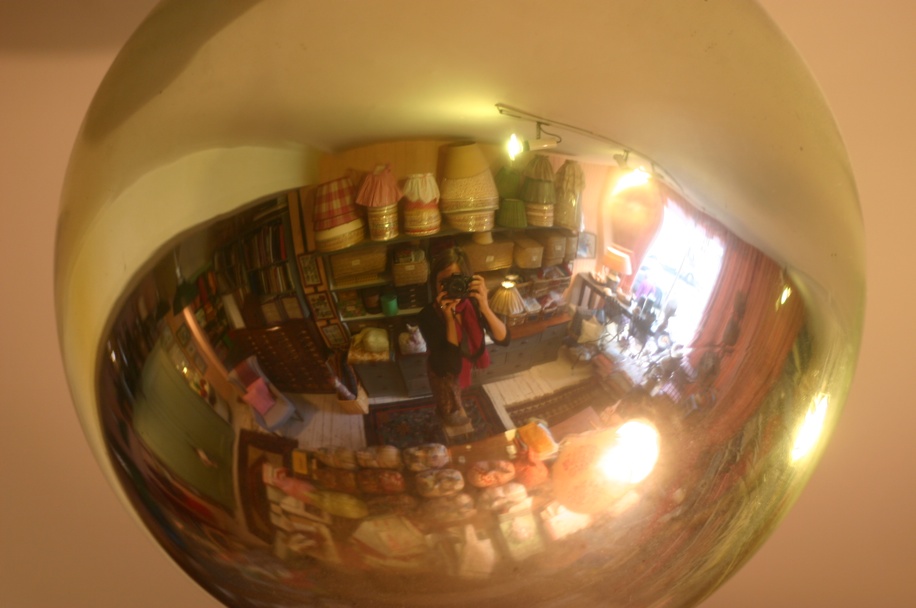Tobias and the Angel, 68 White Hart Lane, Barnes, London SW13 0PZ
When I interviewed Angel Hughes, owner of the eponymous shop, I forgot to ask her a question. Going her shop of 23 years in Chiswick feels like visiting her home. So much so, that I wonder — remembering Angel sitting comfortably on her favourite chair, drinking strong coffee made by her niece, Rose– if she actually lives there…? Or above the shop? Next door? I’m not sure I want to spoil the illusion by learning the answer.
For a start, Angel’s shop sells homewares. Everything from beds, artwork, lamps, mirrors, tables, candles, linens, armchairs to armoires is beautifully, artfully displayed. The combination of these objects seems haphazard but somehow everything seems to belong. Vast piles of quilts in different colours and patterns lie on a bed, rather than one prized piece. Printed cushions made of vintage and handmade cloth (some block-printed by T&A) dot the chairs like they just ended up there. A dining table is set in just the way you would set it. Wooden spoons are displayed in bunches of odd sizes. Tablecloths and napkins are bundled together the way you’d find them in a kitchen drawer. Price-tags are hand-written and descriptive, on proper bits of card. Everything is beautiful, of undoubted quality, but everything also has warmth and a sense of life.
Angel’s employees are either part of her family or have become members by proxy. When I visit, two young women sit quietly chatting and sewing together some large cat doorstops, in a sunny corner of the shop. A striking woman makes a grand entrance and is greeted warmly as a long time friend – ‘…and how is she coping with the new baby…?’ I hear Angel ask. Real cats wander about the place — Angel interrupts our interview at one point to say, “Excuse me, I’ve got to let the cat out of the cupboard. He takes his morning snooze in there…” There’s an Aga stove and a fully functioning kitchen just behind the cash register, where Angel cooks lunch for herself and her staff (I was kindly given scrambled eggs on toast).
Angel, in her 60th year, is a (“happily”) childless matriarch. She’s among the middle of 6 children, but her large family extends beyond blood ties. Like her mother before her, Angel has a tendency to take in strays. She spent her childhood in postwar Germany – Angel’s father was part of the effort to rebuild the nation and build bridges between the British government and Germany’s new coalition. She and her two older brothers, sister and younger twin babies moved from one “rather good” house to another in rural Germany. A curious predicament for her mother — who lost her only brother during the war, and her father, who lost his youngest brother — to find themselves in the land of their enemies, with no knowledge of the language and several young children in tow.
The powerful influence of Angel’s mother is plain to see. Angel describes her, I would say admiringly, as: “naughty, but her own person.” She apparently took the whole of German culture on board, refusing to wrap herself in an English expat cocoon. Angel remembers having a great sense of security and a happy childhood. The family was close, but not exactly nuclear; a variety of different people lived with them in Germany and in Newcastle: home after leaving Germany. Angel recalls the door was often opened to students or some troubled German child, man or woman: “My mother was very open-handed like that, people readily trusted children into her care.”
The death of Angel’s eldest brother when she was 13 was incredibly fracturing to the family. Angel says, “Grief is so interesting because it doesn’t do what people think it will, necessarily. My parents couldn’t share grief with each other, or any of us. The person my mother could share it with was my brother’s girlfriend. She moved in with us, and is still a friend of ours.” Fractured but intact, Angel’s family collected new members along the way.
Foremost among Angel’s childhood memories are visits to ‘junk’ shops in the English northeast (“I don’t like calling them antique shops, that takes a bit of the discovery out of it,” she says). Her mother’s way of coping with all these children was to go to junk shops on a Saturday afternoon “and she’d drag one or another of us with her, especially my brother and I, and we got to love it.” Angel has an abiding vision of herself on the floor, being given a box of broken jewellery, and handling all these objects:
“The quality of what we were playing with was fantastic…and you get it, it comes to you — a feel for these things. You have to come to these things through feeling. That’s why I find it very hard to contemplate buying things on the internet, because if I’m faced with a table full of junk and you see a glass on there that you like and you pick it up and its weight surprises you…and the shape of a bowl is somehow extremely satisfying. Why did you look at it?…Somehow its shape called you out of a whole table full of glass – nothing to do with price at this point – and your brain starts to evaluate why you had that feeling. Because you’re interested, you start to work out why it’s nice. Why is that glass nice? Because it is heavy and got that weight. Why is the underneath of the glass satisfying?… Always processing information…You want to turn it over, lift it up, try it out….I might do it with a really boring tumbler. You can’t be definitive, because what works with one doesn’t work with another, it’s an endless form of guessing.”
This endless form of guessing eventually materialized as Angel’s first shop, in Manningtree, Essex. It was not a success, which Angel puts down to location. She first sold clothes made from vintage cloth: a passion ever since childhood. Angel’s mother gave her two fragments of cloth –which she’s still got—one a piece of 17th century silk gilt brocade and the other a piece of brocade with some colour in it: “very, very old.” Her interest intensified as Angel travelled around, snapping up her first vintage linen sheet for £3 in a village called Eye in Suffolk:
“The idea of lying on linen was heaven to me. Linen had a kind of resonance – partly because of books: you read about them slipping between linen sheets or the lovely cool feel of linen… or you’d go to a museum and see stuff on the bed, or see a wonderful painting…with a waterfall of lace off the pillows…”
Although Manningtree failed, Angel took on a stall in Campden Market that proved very successful. She sold two things, chosen largely because she could carry them around: “Whites”– Victorian camisoles, petticoats and nighties, and semi-precious jewels—coral, agates, marcasite, jet. She began to establish her market, which she still finds it difficult to describe.
“It’s a sort of niche market. Never was I ever anything other than would appeal to a certain sort of person – never ‘popular’ taste in that sense of the word. It would be just somebody who would look at this sort of rather rum collection of stuff but would recognize that it all had a particular sort of quality about it…would see the point of it, somehow. I’ve never really understood that, actually, if I was truthful. I’ve never had a customer who I’ve carried through all areas of my taste.”
After 16 years and a second shop selling furniture, Angel met a man called Tobias and fell in love. Tobias and the Angel was created out of “blind faith” and with help from Toby’s mother, who took a mortgage on her own house. They started out with no money at all – in debt by 5000 pounds. Angel remembers Toby asking what made her think she could manage: “My answer was, ‘Well, other people do it.’ Although Toby was involved with the shop for about 4 years, it was always, Angel says, “her pigeon.” It is the independence owning a shop allows, Angel says, that she loves. “You’re creating, aren’t you, your own environment. You’re inviting people in, you can tell them to go away. It’s like inviting people to tea – you set the tone, which is a fantastic thing to do.”
Next week: Part Two of Tobias and the Angel’s post…
